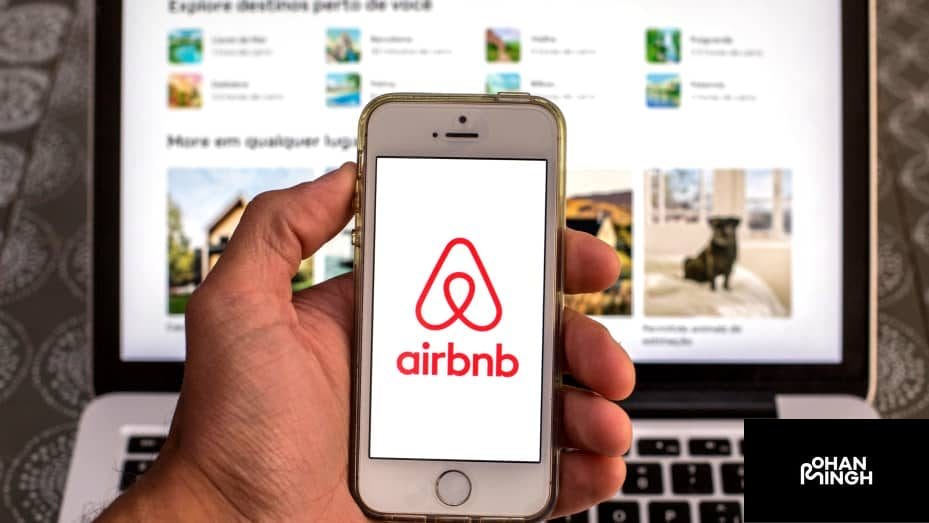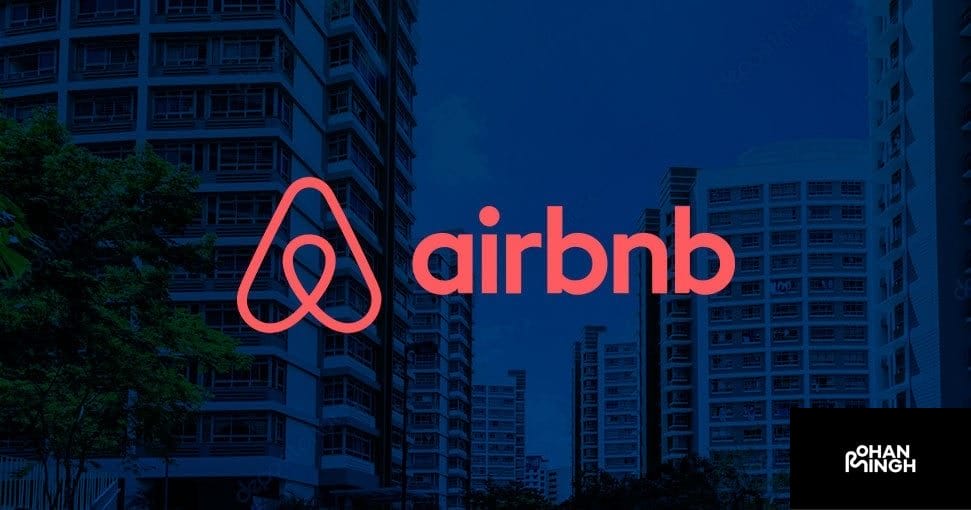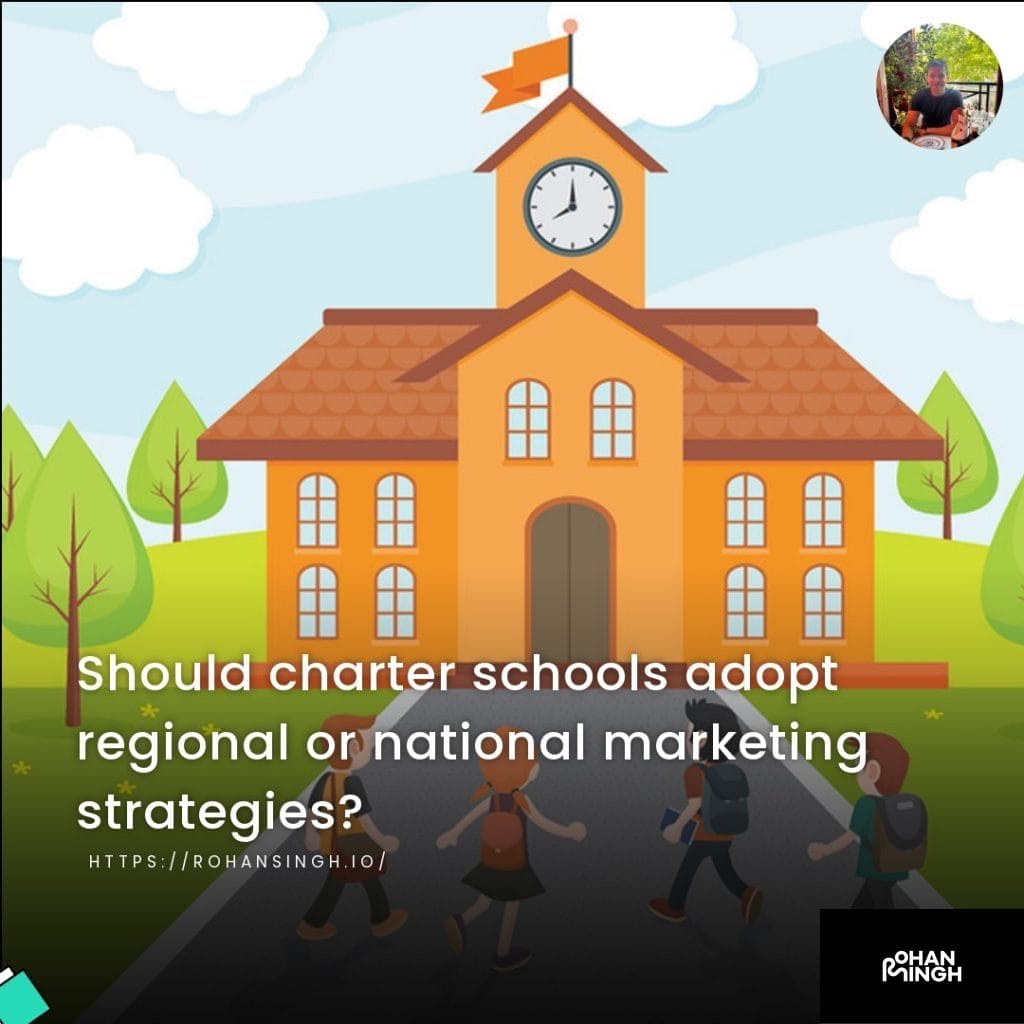How Did Airbnb Execute Their Growth Strategy?

Airbnb’s unique growth strategy was the driving force behind its success. They understood the importance of scaling the business quickly while ensuring it remained profitable. This was done by focusing on user acquisition, product innovation, and offering a personalized experience. The company gained significant traction by having a core service that was both affordable and differentiated from traditional hotel options.
Table of Contents
ToggleAmong the various elements of Airbnb’s growth strategy, one notable approach was the emphasis on professional photographs. Professional photographs greatly enhanced the user experience by attracting guests and reassuring hosts that they were staying in a reputable place. Airbnb was also an early adopter of mobile apps. This enabled users to streamline the booking process and access accommodations on the go, ultimately increasing conversion rates.
Furthermore, Airbnb recognized the power of user-generated content and leveraged it by building a community of hosts and experience hosts. Hosts are encouraged to share their local knowledge and provide guests with genuine hospitality. This has created a unique brand identity for Airbnb that sets it apart from traditional online travel agencies and booking holdings. The company’s aggressive content marketing strategy has also been a critical component of its success. By regularly producing high-quality content, they can attract new users and retain loyal ones.
Airbnb’s growth strategy has enabled the company to expand internationally, with its most significant growth being seen in San Francisco. Alongside this, they have diversified their offerings by introducing Airbnb Plus, which features high-end accommodations and services, and travel credit programs. As Airbnb continues to evolve and grow, one thing is for certain: it will always prioritize maintaining its community of hosts and users.
What is Airbnb?
Airbnb is a travel platform that was founded in 2008 by Brian Chesky and Nathan Blecharczyk. The company began with the idea of providing travelers with alternative accommodations outside of traditional hotels. They wanted to offer a more unique and authentic experience for travelers by allowing them to stay in someone’s home or apartment, which also provided an opportunity for hosts to earn extra income by renting out their unused spaces.
Since then, Airbnb has grown exponentially and has become a revolutionary force in the travel industry. The company has expanded its offerings beyond just accommodations, now offering unique experiences and adventures hosted by locals. With a presence in over 220 countries and regions, Airbnb’s global reach is undeniable.
Airbnb’s platform works by allowing hosts to list their properties or spaces for guests to book, and guests can search for and book accommodations based on their preferences and travel needs. The platform has made it easy for people to find affordable and personalized options for their travels, making travel accessible to a broader range of people.
Let's talk about your future project!
Eager to collaborate on your upcoming endeavor? Let's explore and ignite the potential of your next big idea, shaping a promising future together!
What is Airbnb's business model?
At its core, Airbnb is a two-sided marketplace that connects travelers with hosts who rent out their homes, apartments, or other types of accommodation. Hosts can choose the availability and pricing of their listing, while guests can browse and book through the platform. Airbnb generates revenue by charging hosts a percentage fee for each booking made through the platform and charging guests a service fee for each reservation.
Besides the traditional accommodations, Airbnb also offers add-on services, such as experiences hosted by locals, professional photography services for listings, and Airbnb Plus rentals that guarantee high-quality listings that meet specific design and cleanliness standards. Additionally, the company has expanded its business to include longer-term rentals, luxury rentals under the Airbnb Luxe brand, and transportation services.
This business model has been the foundation for the company’s success, allowing Airbnb to operate on a massive scale. By facilitating connections between travelers and hosts and offering a range of services, Airbnb provides tremendous value to its users while generating revenue from its percentage and service fees. This business model has played a crucial role in Airbnb’s growth strategy and international expansion, paving the way for the company to become one of the most valuable travel companies in the world.

Why is Airbnb unique?
Airbnb has carved out a unique position for itself in the online travel industry. What sets this platform apart is its ability to offer alternative accommodations that cannot be found in traditional hotels. From treehouses and igloos to converted castles and private islands, guests can find a range of unique stays that cater to their needs. This approach has allowed Airbnb to become more than just a booking platform, it has become a community-driven platform for personalized experiences.
Another key factor that sets Airbnb apart is its community-driven approach. The company has built a platform that relies heavily on trust and safety measures to ensure both hosts and guests have a seamless experience. Airbnb has incorporated a system where hosts and guests can leave reviews about their experiences, encouraging transparency and accountability. This peer-to-peer approach also ensures that guests get a chance to interact with the locals, creating a more authentic experience than what traditional hotels can offer.
Furthermore, Airbnb’s innovative features have also played a critical role in its rapid growth. The company has implemented a mobile app that lets users book rooms on the go and introduced a system of verified professional hosts who provide a reliable and consistent experience. Airbnb’s Plus program has further elevated the company’s position by offering high-quality and well-designed accommodations. With these features, it’s evident that Airbnb has managed to differentiate itself and emerge as a leader in the sharing economy.
Who is Airbnb's biggest competition?
When it comes to the online travel industry, Airbnb has certainly made a name for itself. However, as the company continues to grow and expand its reach, it faces stiff competition from other giants in the industry. So, who is Airbnb’s biggest competition?
One major player in this space is Booking.com, which offers a variety of accommodation options from traditional hotels to apartments and vacation rentals. With a wide range of offerings, Booking.com caters to just about anyone looking for a place to stay. The company has also invested heavily in digital marketing to acquire more users and maintain its growth trajectory. However, unlike Airbnb, Booking.com doesn’t have a community-driven approach and doesn’t emphasize building relationships between hosts and guests the same way Airbnb does.
Another contender in this space is Expedia, which also operates as an online travel agent. Expedia offers a similar range of accommodation options as Booking.com but relies more heavily on professional hosts and doesn’t have an extensive reputation system. Expedia’s growth strategy is predominantly focused on customer acquisition, using targeted advertising and offering discounts and other promotions to attract new users.
Finally, there is HomeAway, which focuses on vacation rentals rather than traditional hotels or apartments. HomeAway has been around for a while but its growth trajectory slowed down in recent years, following the acquisition of Airbnb. The company offers a unique type of accommodation, making it a strong contender in the vacation rental space. However, it doesn’t have the same level of user-generated content and community-building as Airbnb, making it a slightly less attractive option for travelers seeking authentic travel experiences.
Overall, while each of these competitors has its strengths, Airbnb’s community-driven approach and effective user acquisition strategy sets it apart from the rest of the pack.
History of Airbnb
Airbnb’s journey began in 2007 when the co-founders, Brian Chesky, Joe Gebbia, and Nathan Blecharczyk, were struggling with the high rent of their apartment in San Francisco. Chesky and Gebbia saw an opportunity during a design conference held in the city, where all the hotels were booked, and guests had no option but to sleep on the floor. They decided to offer air mattresses and breakfast to attendees, which led to the idea of renting out space to travelers when all the hotels are fully occupied.
Initially, Airbnb’s growth strategy was to provide cheaper and better alternatives to traditional hotels and emphasized building relationships between hosts and guests. However, instead of renting “air beds,” the company transitioned to offering rooms and apartments to its users. Airbnb’s early growth was slow, with the founders selling election-branded cereal boxes under the brand name “Obama-Os” to fund their project. Its first-ever booking occurred in 2008, and in 2009 the company raised $7.2 million in funding.
Since the initial phase, Airbnb has grown from being a tiny startup to an international corporation valued at over 35 billion US dollars. Airbnb expanded its reach globally as it proved that its business model worked beyond San Francisco. By 2011, Airbnb’s service was available across the United States and had started expanding internationally. Today, over 4 million hosts and 800 million travelers have used Airbnb’s services. Despite its current dominance in the sharing economy space, Airbnb continues to chart its course by focusing on providing high-quality experiences to its users through innovative initiatives and global expansion.

Founding and Early Days
Airbnb was founded in San Francisco in 2008 by Brian Chesky, Nathan Blecharczyk, and Joe Gebbia. The company was born out of a struggle to pay rent in San Francisco, which led the three founders to come up with the idea to rent out their living room space to guests attending a local design conference. The idea for Airbnb was born, and the home-sharing concept began to take shape.
However, the early days of Airbnb were not without challenges. With no marketing budget and a handful of listings, the founders had to get creative to promote their service. They went door-to-door offering to take professional photographs of hosts’ properties to improve the quality of listings. The founders also personally reached out to potential guests on Craigslist, putting a face to the new service and building trust in the community.
As the number of bookings grew, Airbnb’s business model evolved from simply connecting travelers with hosts to becoming a full-service travel company. In 2014, the company announced Airbnb Plus, a collection of professionally inspected and verified homes. The company also launched Airbnb Experiences, a platform offering unique activities and tours led by locals.
Despite the early challenges, Airbnb’s innovative marketing techniques and evolving business model have led them to become a $35 billion business and a household name in the travel industry. As co-founder Brian Chesky once said, “It’s easy to dismiss Airbnb as being just about air mattresses, but really what we’re trying to do is change the way people experience the world.”
Core Services Offered by Airbnb
Airbnb’s core services revolve around accommodations and experiences. The accommodations segment allows hosts to list their properties, from homes and apartments to single rooms, for guests to rent during their travels. Guests can easily search for available listings by location, price, and desired amenities, among other options. This segment is the backbone of Airbnb’s business and has been instrumental in the company’s growth.
In addition to accommodations, Airbnb offers an experiences segment that allows guests to book unique tours and activities with local hosts. These experiences range from culinary classes to outdoor adventures and provide a personalized touch to the travel experience. Guests can browse through different experiences and book them directly through Airbnb. The combination of accommodations and experiences has helped Airbnb stand out in the crowded travel industry and has been successful in attracting new users to the platform.
Alongside accommodation and experiences, Airbnb offers hosts the option to add professional photographs to their listings. These photographs are an optional add-on service that enables hosts to partner with professional photographers through Airbnb to capture high-quality images of their properties. By doing so, the hosts’ listings are more visually appealing to potential guests, leading to more bookings. With these core services, Airbnb has built a powerful platform that provides value to both hosts and guests worldwide.
Accommodations
Airbnb offers a range of unique and personalized accommodations that cater to different travel preferences and budgets. From private rooms to entire apartments, villas, hostels, and one-of-a-kind stays, Airbnb’s inventory has something for everyone. Each of these options offers a unique set of features and can be filtered based on a guest’s specific needs, be it the location, amenities, or price.
Airbnb ensures that all of its hosts are verified and the accommodations listed are accurately represented via an in-depth verification process. Hosts are required to provide a government ID and a verified phone number, email address, and profile picture. Furthermore, Airbnb offers optional background checks for hosts who have gone through an ID verification process.
The booking process on Airbnb is simple and user-friendly. Guests can filter accommodations based on different criteria such as the number of beds, price, location, and amenities. Once they find the right accommodation, guests can view up-to-date pictures, read reviews from previous guests, and ask questions directly from the host before booking. Guests can make reservations on the website or the Airbnb mobile apps, and the booking process involves instant confirmation from the host in most cases.
Despite the ease and convenience, Airbnb provides to its users, there are a few drawbacks to different types of accommodations. Private rooms may lack some of the privacy of an entire home, while some unique stays may have unconventional amenities that may not suit the tastes of all guests. However, by leveraging technology, Airbnb ensures that the booking process is seamless, easy to use, and accessible to a global audience.

Experiences
Airbnb’s growth strategy is centered around providing unique and personalized experiences to its guests, and this has been a key driver in its international growth. Airbnb offers curated experiences that cater to a wide variety of interests, including food, drink, art, and culture. These experiences are created and hosted by knowledgeable locals who can provide an authentic and enriching travel experience for guests.
Some of the most popular Airbnb experiences with guests include cooking classes, walking tours, photography sessions, and wine tastings. These experiences allow guests to immerse themselves in the local culture, learn new skills, and connect with people from around the world. Moreover, these experiences are designed to be intimate and personalized, with a small group of guests, often no more than six people, which makes it easy for them to bond with each other and the host.
Airbnb has made it easy for hosts to create and offer their own experiences using its platform. By offering unique experiences, hosts can not only earn extra income but also showcase their knowledge and passion for their local culture. Hosts can create multiple experiences and list them on Airbnb’s platform, making it easy for guests to book and enjoy a wide range of activities.
The focus on local experiences that reflect the culture of the destination sets Airbnb apart from its competitors in the travel industry. Guests are looking for something unique, authentic and memorable, rather than just a bed to sleep in. By offering curated experiences, Airbnb has created a loyal community of hosts and guests who appreciate the human connection that travel can offer.
Professional Photographs
High-quality photographs of a home or experience can be the deciding factor for guests when choosing a listing on Airbnb. In fact, according to Airbnb, hosts who have professional photographs on their listing earn 40% more in their first month than those without them. Thus, Airbnb has made a smart move by partnering with professional photographers to help hosts make their listings more appealing. This has been one of the effective ways in which the company has been able to scale user acquisition.
Professional photographs help to highlight the best features of a listing and capture the uniqueness of the space. They also help hosts to stand out in the crowded marketplace, especially during times of high competition in the travel industry. By providing a platform for hosts to showcase their listings with professional photography, Airbnb has been able to maintain its growth path in the industry.
People Behind the Success of Airbnb
The growth and success of Airbnb can be attributed to the genius of several key individuals who played pivotal roles in the development of the company. One of the fundamental persons behind the success of Airbnb is Joe Gebbia, the Co-Founder & Chief Product Officer of the company. Joe played a vital role in shaping the company’s growth strategy by emphasizing the importance of design and user experience in everything Airbnb does. He was instrumental in ensuring that Airbnb’s core values of trust, safety, and belonging were integrated into the company’s product design.
Apart from Joe Gebbia, other co-founders of Airbnb, Brian Chesky, and Nathan Blecharczyk, were also essential in shaping the strategies that propelled the company’s growth. Chesky played a key role in implementing Airbnb’s aggressive content marketing strategy, which led to the company’s rapid growth. Blecharczyk, on the other hand, worked on building the company’s infrastructure, which allowed Airbnb to handle the increasing demand for its services. The board of directors, including CEO Brian Chesky, has played a significant role in shaping Airbnb’s strategy, allowing the company to expand and become a $35 billion business.
The people behind Airbnb’s success realized early on that design and user experience were critical components of the company’s growth strategy. They invested heavily in creating a user-friendly platform where guests could easily find and book accommodations and experiences. Furthermore, Airbnb’s board of directors played a crucial role in shaping the company’s international growth strategy, allowing for expansion into markets worldwide. Thanks to their foresight and dedication, Airbnb has become a global leader in the travel industry, changing the way people experience travel.

Joe Gebbia: Co-Founder & Chief Product Officer
As the co-founder and chief product officer of Airbnb, Joe Gebbia played an instrumental role in bringing the company’s vision to life. He was responsible for designing and creating the initial version of Airbnb’s website and was instrumental in developing the core service that has attracted millions of users worldwide. Today, Airbnb has evolved into a $35 billion business, thanks to Gebbia’s insights into user experience, product design, and development. In this section, we will explore how Gebbia’s contributions helped drive the growth of Airbnb and the strategies he employed to make Airbnb a household name.
Gebbia’s expertise in design and product development was one of the key factors that helped Airbnb gain a competitive edge in the online marketplace. His creative vision and understanding of user needs allowed the company to create a unique user experience that set the standard for the industry. Gebbia also recognized the power of user-generated content in building community and enhancing user engagement. He encouraged Airbnb hosts to provide professional photographs of their properties, which not only improved the visual appeal of Airbnb listings but also increased the likelihood of bookings. As a result, Airbnb quickly gained credibility among users and became a go-to platform for travelers.
Overview of Airbnb’s Growth Strategy
Airbnb’s exceptional success story is attributed to its innovative approach to the hospitality industry. The company is undoubtedly one of the fastest-growing businesses in the world, with a valuation of $35 billion and counting. At the core of this rapid growth is Airbnb’s unique growth strategy, which has enabled it to expand beyond its birthplace in San Francisco to over 190 countries worldwide. In this article, we will delve into Airbnb’s growth strategy, focusing on the key factors that have enabled the company to achieve its current positioning.
Initial Growth
Airbnb, founded in 2008 by Brian Chesky, Nathan Blecharczyk, and Joe Gebbia, began as a simple idea to rent out air mattresses on the floor of an apartment in San Francisco during a sold-out design conference. Initially, the company faced many challenges such as a lack of interest, investors, and poor market conditions. However, they persisted in pursuing their vision and managed to secure funding from Sequoia Capital, and started to scale the business. One of the initial growth strategies of the company was to attend conferences, speaking events, and other gatherings, to raise awareness about the company and acquire new users.
In its early stages, Airbnb’s exponential growth was propelled by the power of word-of-mouth and referrals from satisfied customers. With each referral, Airbnb offered travel credit, resulting in an even stronger acquisition strategy. The company also distinguished itself from traditional online travel agencies by focusing on creating an incredible and unique experience for its users. Professional photographs of the listings and their surroundings, accompanied by exceptional customer service, turned Airbnb into a trusted source of travel accommodation. As a result, Airbnb managed to reach a significant milestone of 1 million bookings before its fifth year and expanded internationally around 2012, focused on providing impactful platforms to their hosts. These vital growth strategies propelled the company forward, and Airbnb now has over 7 million listings and operates in more than 100,000 cities worldwide.

Today’s Global Reach
Airbnb, the world’s largest online marketplace for lodging, has seen significant growth in recent years. From its humble beginnings in San Francisco in 2008, the company has expanded its global reach to over 220 countries and regions, with more than 7 million listings. This rapid expansion is a testament to the successful growth strategy of Airbnb, which has consistently focused on international expansion as a key driver of its growth.
Airbnb’s international growth strategy has been fueled by several factors, including a focus on localizing its platform to appeal to users in different markets. The company has also invested heavily in marketing, using both digital and traditional marketing channels to promote its service to travelers around the world. With a strong presence in key markets such as the US, Europe, and Asia, Airbnb has been able to grow its user base and capture a significant share of the global travel market.
How did Airbnb grow so fast?
Airbnb is a prime example of a company that used its innovative approach to revolutionize the travel industry. Founded in 2008, this startup capitalized on the potential of the “sharing economy.” Airbnb’s ability to provide people with affordable accommodation options that felt more like a home than a hotel set the company apart.
One of the main strategies that contributed to the company’s success was its referral program which incentivized users to invite others to join the platform. This cost-effective tactic helped drive significant user acquisition, it also increased customer loyalty and retention. Partnering with online travel agencies, such as Booking.com, allowed the company to reach a larger audience and gain credibility.
Airbnb’s strategic priorities were centered around data and analytics to guide their decision-making. Using data, the company discovered that users were more likely to book properties with quality photos taken by professional photographers. Airbnb launched a program that allowed hosts to access professional photography services, a move that led to a significant increase in bookings and revenue growth.
The company’s growth strategy also focused on leveraging different channels. Airbnb’s emphasis on mobile apps and email marketing helped them reach a broader audience and increase their conversion rate. Additionally, Airbnb prioritized building a community of hosts and experienced hosts and rewarded those who provided excellent guest experiences.
What sets Airbnb apart from its competitors is evident in its organic growth. The company has built an advantage of confidence, where users are confident that they will find accommodation options that meet their needs.
However, the COVID-19 pandemic created a significant challenge that required the company to pivot its growth strategy. Travel restrictions and fears of spreading the virus made people hesitant to travel. Airbnb, acting fast, shifted its focus to creating safe and affordable longer-term stays, away from crowded hotels. Investing in aggressive content marketing strategy and user-generated content like blogs and social media has helped the company stay relevant, and continue to grow during this volatile period.
In conclusion, Airbnb’s growth was fueled by innovative thinking, smart partnerships, data-driven decision-making, and excellent user experience. By implementing a growth strategy that prioritized its users’ needs, Airbnb emerged as a leading player in the hospitality industry and continues to push the boundaries of what is possible.
What makes Airbnb so successful?
Airbnb’s success can be attributed to its strong foundation of service offerings, referral programs, and growth channels. As an OTA, the company delved into the sharing economy by providing unique experiences that allowed travelers to feel like locals in the places they visited. Airbnb’s innovative approach, which incorporates technological advancements, increased the number of potential locations available to customers. The company’s flexible and affordable pricing structure made it an alternative to traditional hotels. Additionally, Airbnb’s user-friendly website made the booking process easy, contributing to the company’s success.
One of the key factors in Airbnb’s growth trajectory is its referral program. The program offers incentives to users who invite others to join the platform and make a booking. This strategy was cost-effective and helped increase customer loyalty and retention. By incentivizing existing users to refer new users, the company saw an increase in user acquisition, which, in turn, contributed to the company’s growth.
Another contributing factor to Airbnb’s success was its growth channels, which include mobile apps and email marketing. Both channels helped reach a broader audience and increase the company’s conversion rate. Additionally, Airbnb prioritized building a community of hosts and experienced hosts and rewarded those who provided excellent guest experiences. The company’s focus on data and analytics to guide decision-making also helped drive growth.
Furthermore, the company’s approach to growth involves tapping into the sharing economy, which sets it apart from its competitors. This approach provides users an opportunity to monetize their spaces, which could be in high demand in certain locations. And unlike traditional hotels, Airbnb offers a more intimate and local experience, relatable to many travelers.
The competencies of Joe Gebbia, Airbnb’s co-founder, were also instrumental in the company’s success. His expertise in design-thinking, which allowed the company to center its focus on delivering customer value, coupled with his ability to find creative solutions to problems, was critical to the growth path of the company. These have been the essential factors in the growth strategy of Airbnb, which has made it a 35 billion-dollar business.

Strategies Leveraged by Airbnb for Its Massive Growth
Airbnb’s growth is nothing short of remarkable. The company’s innovative approach to the sharing economy has revolutionized the travel industry, making it easier for people to access affordable and unique accommodations. However, while many factors have contributed to Airbnb’s success, the company’s strategic use of online travel agencies (OTAs) and referral programs has played a central role in driving user acquisition and retention.
Airbnb’s referral program has been an essential strategy in driving growth. The program incentivizes current users to invite new users to the platform, rewarding them with travel credits for every successful referral. This has helped Airbnb expand its user base and encourage customer loyalty and retention. Additionally, Airbnb has partnered with OTAs like Booking.com and Expedia, making it easier for travelers to find and book accommodations through the platforms. This has helped Airbnb tap into new audiences, expanding its reach and driving growth.
Another key factor behind Airbnb’s growth has been its strategy to diversify its services. The launch of Airbnb Plus and Experiences offerings has allowed the company to capture a more extensive share of the travel market. Airbnb Plus offers travelers a more premium experience, with professionally photographed and verified listings, while Airbnb Experiences provides unique and curated local experiences. By diversifying its offerings, Airbnb has ensured that it caters to a broader range of travel needs, driving growth and customer satisfaction.
To keep pace with its rapid growth, Airbnb invests heavily in marketing and advertising. The company’s approach to marketing includes a strong social media presence, search ads, and an aggressive content marketing strategy, among others. These efforts have helped Airbnb cement its position in the industry, establishing it as a leading platform for travel accommodations, and further driving growth and user acquisition. With these strategies, Airbnb has positioned itself as a dominant player in the travel industry, poised for even more growth and success.
What kind of strategy does Airbnb use?
Airbnb’s growth strategy is focused on leveraging its core services to become a dominant player in the travel industry. The company’s business model and vision are centered on providing a platform to connect travelers with unique local experiences offered by hosts from around the world. This approach has allowed Airbnb to transform the travel industry and establish itself as a major global brand.
To drive user acquisition and growth, Airbnb has used a variety of strategies and channels. One of the most effective has been its referral program, which incentivizes current users to invite new users to the platform, rewarding them with travel credits for every successful referral. This has been a significant driver of growth for Airbnb, encouraging customer loyalty and retention. The company has also utilized search ads to reach new audiences and increase traffic to its platform. Additionally, Airbnb has implemented additional verification measures such as identity verification and professional photography services to increase trust and transparency, further driving growth and customer satisfaction.
In response to changing circumstances, such as travel restrictions and the Covid-19 pandemic, Airbnb has adapted its growth strategy. During the pandemic, the company shifted its focus to longer-term bookings and introduced new features such as Work from Anywhere and Online Experiences to cater to the changing needs of travelers. This flexibility and adaptability have allowed Airbnb to remain resilient in the face of challenges and continue its growth trajectory.
What is the global strategy of Airbnb?
Airbnb is a global platform, making it necessary for the company to implement a robust growth strategy to penetrate and succeed in various regions worldwide. One of the ways Airbnb has achieved this is by developing a unique expansion approach that prioritizes strategic partnerships, market research, and localization. The company works with local governments, tourism boards, and other organizations to understand the local market’s needs and preferences, allowing it to adjust its services accordingly.
Another critical component of Airbnb’s strategy is driving sustainable tourism growth. This has seen the company collaborate with various organizations, create sustainable tourism initiatives, and support local communities. For example, Airbnb has partnered with organizations such as the UNWTO and the Caribbean Tourism Organization to promote sustainable tourism and boost the local economy.
Airbnb has also relied on a variety of growth channels to increase its global presence, including the introduction of new service offerings like Airbnb Plus and Airbnb Luxe. These offerings cater to customers’ diverse preferences and needs, from budget-conscious travelers to those looking for a more luxurious experience. Furthermore, the company has utilized its referral program, which has been a significant driver of growth, encouraging customer loyalty and increasing user acquisition. By leveraging these strategies, Airbnb has become a $35 billion business with a presence in over 191 countries and more than 100,000 cities globally.

What was Airbnb's market entry strategy?
When Airbnb was founded in 2008, it faced numerous challenges in establishing its presence in the crowded travel industry. The co-founders, Brian Chesky and Joe Gebbia, initially struggled to attract both hosts and guests to their platform. However, they found creative ways to overcome these challenges and gain recognition.
One of the tactics that Airbnb used was reaching out to influential bloggers to generate buzz about their service. They reached out to notable bloggers in the tech and travel communities, asking them to write about their platform. This strategy helped Airbnb gain early traction and win over users who were initially skeptical about the idea of renting out their homes to strangers.
In addition to reaching out to influential bloggers, Airbnb attended major events such as South by Southwest (SXSW) and the Democratic National Convention to gain exposure. They set up a booth and offered discounted stays to attendees, generating interest from potential hosts and guests.
But perhaps the most notable aspect of Airbnb’s market entry strategy was its use of “Guerrilla Marketing.” They created a series of politically-themed cereal boxes and placed them in local convenience stores in the lead-up to the 2008 presidential election. Each box contained a collectible food item and a link to Airbnb’s website. This unique marketing tactic generated widespread media attention and helped to establish Airbnb as an innovative and disruptive player in the travel industry.
Thanks to its market entry strategy, Airbnb has become a hugely successful player in the travel industry, valued at $35 billion. Their innovative approach, which focused on leveraging influencer marketing, attending major events, and utilizing guerrilla marketing tactics, helped to set them apart from their competitors and establish a strong brand identity.
Does Airbnb use a transnational strategy?
Airbnb has been a rapidly growing global company since its inception in 2008. To accommodate that growth, it utilized a transnational strategy: an approach that combines the global reach and resources of a multinational corporation with the ability to adapt to local market conditions. By operating in such a manner, Airbnb has been able to build a strong brand image while customizing its offerings to fit the needs and preferences of different regions.
One example of Airbnb’s approach can be seen in its developing markets. In these regions, the company has adjusted its offerings to accommodate their unique characteristics by creating local versions of its platform, offering features such as cash payments and 24/7 support. At the same time, it has continued to prioritize brand consistency and simplified user experiences across all markets. Ultimately, this has allowed Airbnb to maintain its competitive advantage in the rapidly changing and growing global travel industry.
Online Travel Agencies (OTAs)
Online Travel Agencies (OTAs) played a significant role in Airbnb’s ability to accelerate its growth in the travel market. By partnering with top OTAs, Airbnb was able to reach a wider audience and attract new guests to their platform. This strategy helped Airbnb compete with traditional hotels and other accommodation providers by providing a more diverse range of accommodations. The partnership with OTAs also helped Airbnb to improve its brand recognition on a global scale.
Airbnb has partnered with some of the top OTAs in the market, including Booking.com, Expedia, and TripAdvisor, to name a few. These partnerships helped Airbnb to expand its reach and attract new guests who were not yet part of its community. Airbnb also implemented a referral program with these partners, incentivizing guests to book through their platform and receive travel credit for future bookings. This was a smart strategy since it encouraged guests to refer their friends and family, ultimately leading to more bookings on Airbnb’s platform.
Overall, partnering with OTAs represents a key part of Airbnb’s growth strategy. It has helped them to reach new audiences, expand their platform, and become a major player in the travel industry. The benefits of partnering with OTAs have allowed Airbnb to remain competitive and continue to grow, and it will likely continue to be an essential part of their strategy moving forward.

Referral Program
Airbnb’s referral program has played a crucial role in its growth strategy. By incentivizing existing users to bring in new guests, Airbnb has been able to acquire a significant number of new users. The way the referral program works is simple: an existing user can refer a friend to Airbnb by sharing their unique referral link. When the friend signs up and completes their first booking, both the referrer and the friend receive a travel credit that they can use on future bookings. This is a win-win situation for both parties, with the friend receiving a discount on their first booking and the referrer earning travel credit for future bookings.
Airbnb has implemented successful referral programs in the past with various incentives. In 2015, Airbnb gave its users $25 in travel credit for each new member they referred who then completed their first trip. The following year, they increased the incentive to $35 for each new member, delivering a significant increase in referrals. In 2017, Airbnb rolled out a special referral bonus for Superhosts, encouraging their top-rated hosts to invite their network of fellow hosts using a unique referral code. These referral programs have driven significant user acquisition for Airbnb, contributing to its growth as a leading online marketplace for short-term rentals.
Creating an effective referral program requires clear messaging, valuable incentives, and easy sharing options. By communicating the incentives clearly and making it easy for users to share the referral link with their friends, Airbnb has been able to make the referral program an integral part of its growth strategy. Additionally, offering travel credit as an incentive has proven successful in encouraging users to invite their friends to join the platform. Similar to Airbnb’s successful referral program, businesses can create their referral programs that offer valuable incentives for both the referrer and the friend, while also making it easy to share the program with others.
What is the key success factor of Airbnb?
One of the key success factors of Airbnb lies in its unique business model. By leveraging the power of the sharing economy, Airbnb facilitates the renting of short-term lodging accommodations to travelers across the globe. This business model has allowed for significant growth in a market traditionally dominated by hotels and online travel agencies. In addition, the user-friendly platform of Airbnb has made it easy for hosts to list their properties and for travelers to search and book accommodations. This ease of use has contributed greatly to the company’s success and has helped to build a loyal following of users.
Another factor contributing to Airbnb’s success is its diverse service offerings, including Airbnb Experiences and Airbnb Plus. Airbnb Experiences offers unique activities and tours led by locals, while Airbnb Plus offers premium accommodations with enhanced amenities. These offerings have helped Airbnb to appeal to a wider range of travelers and have driven further growth for the company.
Effective marketing strategies have also played a key role in Airbnb’s success. Through aggressive content marketing and email marketing campaigns, as well as through mobile apps and user-generated content, Airbnb has successfully grown its user base and market share. Strong community-building initiatives, including the Superhost program and professional host offerings, have also helped to foster a sense of trust and connection amongst users, contributing to Airbnb’s overall success.
The data reflects this success – as of 2021, Airbnb has a market capitalization of around $120 billion, making it one of the most valuable hospitality companies in the world. Its growth trajectory has been impressive, with over 4 million listings in more than 220 countries worldwide. The key success factors of Airbnb have played a significant role in driving this growth and it will be interesting to see how the company continues to leverage these factors as it navigates new opportunities and challenges in the future.
Final Thoughts
Airbnb, the growth strategy of a 35 billion-dollar business, is a testament to the power of disruptive thinking. Its innovative approach to travel has revolutionized the industry and has created numerous opportunities for hosts and travelers alike. Through its growth strategy, Airbnb has been able to remain competitive and continue to expand its offerings. As the travel industry continues to evolve, it will be interesting to see how Airbnb adapts and evolves its growth strategy to maintain its position in the market.
In conclusion, Airbnb’s growth and user acquisition strategy has been driven by its commitment to providing a unique and authentic travel experience for its users. This has been achieved through a combination of innovative services like Airbnb Experiences and Airbnb Plus, effective marketing strategies, and community-building initiatives like the Superhost program. As Airbnb continues to expand into new markets, it will be essential for them to maintain its focus on providing value to its users and adapting its growth strategy to meet new demands in the travel industry. With its strong balance sheet and the support of its loyal community of hosts and guests, Airbnb is uniquely positioned to remain at the forefront of the travel industry for years to come.
What Marketing Strategy Did Cheetos Employ for Plants vs. Zombies Collaboration?
Rohan Singh | May 1, 2024 | Acquisition What Marketing Strategy Did Cheetos Employ for Plants vs. Zombies Collaboration? Background on Cheetos Cheetos, a popular brand of cheese-flavored snacks, has made a name for itself with its bold and playful marketing strategies. Known for its irreverent and creative campaigns, Cheetos has consistently found unique ways […]
What Marketing Strategy Did Cheetos Employ for Plants vs. Zombies Collaboration?
Rohan Singh | May 1, 2024 | Acquisition What Marketing Strategy Did Cheetos Employ for Plants vs. Zombies Collaboration? Background on Cheetos Cheetos, a popular brand of cheese-flavored snacks, has made a name for itself with its bold and playful marketing strategies. Known for its irreverent and creative campaigns, Cheetos has consistently found unique ways […]
What Differentiates Differentiated Marketing Strategy from Undifferentiated?
Rohan Singh | April 30, 2024 | Acquisition What Differentiates Differentiated Marketing Strategy from Undifferentiated? Definition of Differentiated Marketing Strategy A differentiated marketing strategy is a targeted approach that focuses on creating unique products or services to meet the specific needs and preferences of different customer segments. It recognizes that customers have diverse tastes, preferences, […]
What Sets Apart the Marketing Concept from a Marketing Strategy?
Rohan Singh | April 29, 2024 | Acquisition What Sets Apart the Marketing Concept from a Marketing Strategy? Definition of Marketing Concept The marketing concept is a philosophy that places the customer at the center of all marketing activities. It focuses on understanding the needs and wants of the target market and delivering value to […]
Which promotional mix strategy targets market channel members?
Rohan Singh | April 28, 2024 | Acquisition Which promotional mix strategy targets market channel members? When it comes to promoting a product or service, companies utilize various strategies to reach their target audiences. One key strategy that directs marketing efforts toward market channel members is known as trade promotion. Trade promotion is a type […]
Should charter schools adopt regional or national marketing strategies?
Rohan Singh | April 27, 2024 | Acquisition Should charter schools adopt regional or national marketing strategies? Purpose When it comes to marketing strategy in the field of charter schools, two broad approaches can be taken: regional and national. Each approach has its purpose and benefits depending on the goals and aspirations of the charter […]
Similar articles about Acquisition Strategy:
Ready to Plan Your Dream Trip with ChatGPT Vacation Planner?, Want to Experience the Magic of Third-Party ChatGPT Plugins?
How can Efficient Project Management Boost Your Success?, Looking to Boost Your YouTube Views? Use ChatGPT for Top-Notch Video Optimization!, Are You Leveraging SEO Audits to Win More Clients?, Ever Thought of Starting an AI Career? Discover How Today!, Can SEO Propel Your Store to 1 Million Monthly Visitors?, How Can Google Bard Supercharge Your SEO Content Strategy?
Which is the Best AI Chatbot? A Head-to-Head Comparison of ChatGPT, Claude 2, Bing Chat, and Google Bard, Eager to Multiply Local Business Reviews from Travelers?, Want a Game-Changer in SEO? Have You Tried AI and Chrome Extensions Yet?, Can AI-Powered Growth Spark Your Business Acceleration and Digital Transformation?, Ready to Achieve SEO Mastery and Stand Out in the Digital World?
Ready to Dominate the Future? How Can You Kickstart Your AI Data Science Career Today?, Want to Dominate Google SERP? Learn How to Supercharge Your Content Strategy!, Have You Explored the ChatGPT Android App Yet?, Ready to Supercharge Your Business? Harness the Power of Always-On PPC Strategy Now!
Are You Choosing the Right Digital Agency for Your Business? Discover the 5 Key Considerations!, How Can AI Marketing Tools Transform Your Social Media Career?, How Can You Dominate YouTube Rankings with SEO in 2023?
Struggling with Competitive Organic Keywords? Try Our Advanced Keyword Domination Strategy!, Want to Dominate Google Page Ranking? Discover the Secrets Here!, Can You Transform Unexpected Publicity into Opportunity with PPC?
Want to Create High-Converting Emails Fast? Have You Tried AI Copywriting & ChatGPT?, How Can You Thrive in the AI Era? A Guide to AI Survival, Want to Dominate Google’s First Page? Discover the Essential SEO Ranking Factors, How to Implement Generative AI Tools Safely and Ethically? Navigating the Ethical AI Implementation Quandary
Ready to Scale Your Career? How to Learn Growth Marketing in 6 Transformative Steps, Ready to Launch Your Career? How to Land Your First Digital Marketing Job: A Must-Read Guide for Freshers!, Want to Safeguard Your Paid Search Campaigns? Discover Proven Strategies Here!
Looking to Boost Your WordPress SEO with AI? Here are 12 Tools You Can’t Miss!, Want to Boost Your Google Rankings? Master SEO Strategies to Hit #1 Now!, How Can AI SEO Revolutionize Your Online Strategy?, Are Your High Schoolers Ready for the AI Wave?, How Can You Achieve Perfect SEO Harmonization?, Ready to Ignite Niche Buzz? Learn How to Fuel Demand!, Ready to Supercharge Your Digital Marketing Agency’s Growth?,
Can ChatGPT Elevate Your PPC Strategy?
Ready to Dominate Digital Marketing in 2024 Using AI?, Want the Secret to #1 Rankings with SEO Web Design?, Ready to Break Language Barriers with Google Bard?, Ready to Boost Your Cleaning Business via Google Ads with Mcelligot?
How Can You Master Google Analytics 4 Quickly?, How Can SEO Mastery Elevate Your Brand’s Future?, Want to Boost Your SEO in 2023? How Can Guest Posting Help?, Want to Top Google’s Charts? How Can the ChatGPT SEO Hack Propel You?
Want the Best Visibility for Your Videos? How Does Video SEO Upload Make a Difference?, How Can You Improve Your Video’s Rank with YouTube SEO Tips?, How Can SEO be Your Ultimate Tool for Generating Leads Forever?, How Can SEO Boost Elevate Your Ranking and Conversion Rates?
How Can Digital Marketing Supercharge College Enrollment?, How Can SEO Mastery Ensure Endless Lead Generation?, How Can You Craft an AI-Ready Resume for Modern Recruitment?, How Does Venmo’s Marketing Strategy Drive Success?
How Can an Effective CEO Branding Strategy Elevate Your Business?, What Makes Doritos’ Marketing Strategy a Winning Formula?, How Does IKEA’s Marketing Strategy Revolutionize Home Furnishing?
What Sets Apart Samsung’s Advertising Strategy for Success?, How Does Nintendo’s Marketing Strategy Revolutionize Gaming?, How Does Bank of America’s Marketing Strategy Drive Success?
How Does Nestle’s Marketing Strategy Drive Business Growth?, What differentiates Nike and Adidas marketing strategies?, What differentiates a Go-to-Market Strategy from a Marketing Strategy?, What are the marketing strategies of Amazon and Flipkart?
What distinguishes a pull strategy from a push strategy in marketing?, What are the marketing strategies of Pepsi and Coke?
What distinguishes a Chief Strategy Officer from a Chief Marketing Officer?, What sets apart a marketing strategy from a sales strategy?
What are the marketing strategies of Colgate and Pepsodent?, What differentiates marketing research from marketing strategy?, Examples of marketing strategy and tactics, What is an effective marketing strategy for car dealers?
How does Nike’s marketing strategy drive its success?, How does Nike execute its international marketing strategy?, What’s the secret behind an effective hot sauce marketing strategy?, What drives Amazon’s powerful marketing strategy?
How can an innovative marketing strategy drive business growth?, What is Nissan’s effective advertising strategy?, What are the differences between one-to-many and one-to-one marketing strategies?, What sets apart big business and small business marketing strategies?
What differentiates Amazon’s marketing from its business strategy?, How can small businesses choose between global marketing standardization and adaptation?, Which platform offers the best marketing strategy: YouTube, Facebook, or Instagram?, How does Nike’s marketing strategy compare to Reebok’s?
Which marketing strategy is better: Deluxe or Premium?, What marketing strategy suits tangible vs intangible dominant products?, Guerilla marketing vs bootstrap marketing: Which is more effective?, Which is better: Niche marketing or concentrated marketing?
What are the differences between undifferentiated, differentiated, and concentrated marketing strategies?, What was the marketing strategy for Mayweather vs. McGregor?, What distinguishes the marketing strategies of Suzuki and Honda motorcycles?, Which is more effective: Regional or national marketing strategy?
What differentiates global marketing strategy from a multidomestic strategy?, Which marketing strategy is ideal for tangible vs. intangible dominant products?, How does Pepsi’s marketing strategy compare to Coca-Cola’s?, When is it appropriate to use differentiated marketing versus a mass market strategy?, What sets apart the marketing strategy for services from products?, How do HP and Dell differ in their marketing strategies?
How do PlayStation and Nintendo differ in their marketing strategies?, How do Timex and Rolex differ in their marketing strategies?, What is the purpose and focus of a social marketing strategy?, How does Facebook’s marketing strategy compare to Google’s?, When to choose concentrated marketing strategy over differentiated marketing?, How does Lowe’s marketing strategy compare to Home Depot’s?
Is it better to use multiple brand names or one brand name in your marketing strategy?, Which is more effective: marketing strategy with coupons or email campaigns?, What sets Verizon, T-Mobile, and AT&T apart in their commercial marketing strategies?,What Sets Apart Global Marketing Strategy from US Marketing Strategy?
Multinational vs. Transnational Marketing Strategy: What’s the Difference?, What’s the Distinction: Advertising vs. Marketing Strategy? Uncover the Differences., What Are the Advantages of Centralized and Decentralized Marketing Strategies?
What’s the Difference Between Guerrilla and Bootstrap Marketing Strategies?, How Do Pepsi and McDonald’s Differ in Marketing Strategies?, What Differentiates a Marketing Strategy from Tactics Deck?, What Sets Apart Suzuki and Honda Marketing Strategies?, How Does a Vision Statement Differ from a Marketing Strategy?,What’s the Difference Between Concentrated and Undifferentiated Marketing Strategies?
How Do Microsoft and Apple Differ in Marketing Strategies?,What Sets Apart the Marketing Strategies of Xbox One and PS4?,What Sets Apart Li Ning and Adidas Marketing Strategies?, How Do Pepsi and Coke Differ in Marketing Strategies?, How Do Distribution Strategy and Marketing Strategy Intersect?, What Sets Apart Global and Domestic Marketing Strategies?, What Makes an Effective Marketing Strategy for Consulting Services vs Operations?, What’s the Difference Between a Digital Marketing Plan and Digital Strategy?
How Does Marketing Strategy Impact Channel Selection? ,How Do Boeing and Airbus Differ in Their Marketing Strategies?, What is the Difference Between Corporate and Marketing Strategy?,What can we learn from Walmart’s global vs marketing strategy case study?, What distinguishes General Motors’ marketing strategy from Ford’s?, What are the differences in marketing strategies between McDonald’s and Burger King?, What is the difference between marketing and commercial strategy?, What distinguishes Home Depot and Lowe’s marketing strategies?,
How does marketing strategy differ for small businesses vs. big businesses?,What sets IKEA’s marketing strategy apart from competitors?, What are the marketing strategies of Nestle and Cadbury? ,What Sets Apart Puma and Adidas Marketing Strategies?, What’s the Distinction Between Operational and Marketing Strategy?,
What Differentiates Marketing Strategy Text and Cases International Edition from US?, What Differentiates Marketing and Operational Strategies for Nonprofit Startups?,
What are the differences between Intel and AMD’s marketing strategies?, What Sets Apart Nokia and Samsung Marketing Strategies?, What’s the Difference Between Marketing Plan and Strategy for Therapists?, What Sets Apart Wendy’s, McDonald’s, and Burger King Marketing Strategies?
What’s the Difference Between Single Country Marketing and Global Marketing Strategy?, What Sets Apart Marketing Strategy from Sales Strategy?, What Differentiates Pizza Hut and Domino’s Marketing Strategies?, What’s the Distinction Between Channel Strategy and Marketing Strategy?, What Are the Essential Steps in Developing a Marketing Strategy?
What Makes Coca-Cola’s Marketing Strategy Successful?, What Sets Apart Mattel’s Marketing Strategy for Success?, What Is the Key to Goodwill Marketing Strategy?, What’s the Ideal Marketing Strategy for Senior Living Communities?, How Do You Formulate an Effective Marketing Strategy?, What Are the Four Steps to Designing a Customer-Driven Marketing Strategy?, What Makes UFC’s Marketing Strategy a Knockout Success?, How to Develop an Effective Marketing Strategy for a Consulting Firm?
What’s the Winning Marketing Strategy for Car Dealerships?, What Are the Four Steps to Designing a Customer-Driven Marketing Strategy?, What Differentiates Marketing Strategy from Corporate Strategy?, How Do Marketing Planning and Strategy Differ in Demographics vs Psychographics?, What distinguishes a Content Strategy from a Content Marketing Strategy?, Blue Ocean Strategy vs. 22 Immutable Laws of Marketing: Which Approach Drives Business Success?, Are digital marketing strategies superior to traditional ones?, What are the differences between inbound and outbound marketing strategies?, What Sets Apart Digital Marketing Strategy from Social Media Strategy?
What Sets Apart Marketing Strategy and Marketing Campaign?, How Did Uber Implement Their Growth Strategy?, What’s the difference between a digital marketing strategy and a social media strategist?, What Sets Apart Two-Sided and One-Sided Fast Food Marketing Strategies?, What’s the Distinction Between Marketing Product Manager and Marketing Strategy Manager?,
How Did Airbnb Execute Their Growth Strategy?, What differentiates a marketing strategy from a tactic?, What makes an effective museum marketing strategy?, What are the differences between traditional and digital marketing strategies?, How Do Advertising Objectives Align with Marketing Strategy Planning?, What Sets Apart Marketing and Operational Strategies for Startups?, What Differentiates Web Strategy from Digital Marketing Strategy?, What’s the Difference Between Project Management and Marketing Strategy?, How do Absolut and Smirnoff vodka differ in their marketing strategies?, How does marketing strategy differ for services versus operations?
Which Dominates: Amazon vs. eBay Marketing Strategy? Unveiling the Differences., How does a global marketing strategy balance adaptation and standardization decisions?, What Differentiates a Marketing Plan, Strategy, and Campaign?, What Are Canon and Nikon’s Marketing Strategies?, How does a content strategy differ from a marketing plan?, What sets marketing apart from strategy?,What sets apart a total web strategy from a web marketing strategy?, How do business strategy and marketing align for success?
What Are the Steps to Develop a Customer-Driven Marketing Strategy?, How Do B2C and B2B Marketing Strategies Differ?, What Sets Apart Marketing Strategy from Marketing Mix?, What’s the Difference Between Business and Marketing Strategy?, How does a Content Strategy differ from a Marketing Strategy?,
How Does the Good vs Evil Dynamic Impact Sex Sells Marketing Strategy?, How Does a Marketing Plan Differ from a Competitive Strategy?, Which marketing strategy works best for videos: Facebook or YouTube?, How Did Tata Communications Implement an Effective Emerging Markets Growth Strategy?,
How do Samsung and Sony differ in their 3D TV marketing strategies?, What Differentiates International and Domestic Marketing Strategies?, What’s the Distinction Between Commercial Strategy and Marketing Strategy?, How do Apple and Samsung’s marketing strategies compare?, What is the difference between marketing methods and marketing strategy?, What was the marketing strategy behind Sarabhai vs Sarabhai’s success?
Which Marketing Strategy Dominates: Tangible or Intangible?, What Sets Apart Blue Ocean and Red Ocean Marketing Strategies?, What are the differences in Walmart’s marketing strategy between the US and Mexico?, How do marketing plan, strategy, and management work together for business success?
Can you provide a marketing strategy vs marketing plan example?, What Differentiates Brand Building from Product Marketing Strategy?, What is the importance of an advertising strategy statement?, What Sets Apart Cisco’s B2B Marketing Strategy from Dell?, What are the differences in Intel and AMD’s marketing strategies?, What’s the Difference Between Marketing Plan, Strategy, and Management?
What’s the Difference Between Digital Marketing and Digital Strategy?, What’s the Difference Between Offensive and Defensive Marketing Strategies?, What’s the Marketing Strategy for Tangible vs. Intangible Dominant Products?, Which is Better for Your Business: Marketing Strategy vs. ClickBank vs. Quant?, Should I focus on marketing regionally or nationally? Expert insights revealed., Should a global marketing strategy prioritize adaptation or standardization?, What Sets Apart Marketing Strategies for Commodity Products vs. Luxury?, What Sets Apart Integrated Marketing Communications (IMC) from Traditional Promotion Mix Strategies?
Should charter schools adopt regional or national marketing strategies?, Which promotional mix strategy targets market channel members?, What Sets Apart the Marketing Concept from a Marketing Strategy?, What Differentiates Differentiated Marketing Strategy from Undifferentiated?, What Marketing Strategy Did Cheetos Employ for Plants vs. Zombies Collaboration?
Share :






